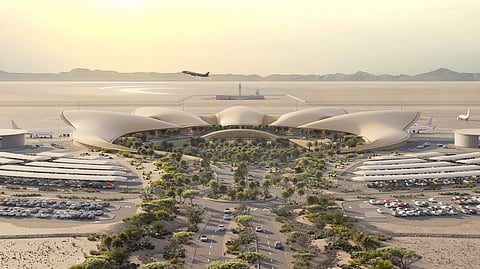Airlines at Saudi Arabia's Red Sea Airport can now refuel with sustainable aviation fuel
The green fuel at RSI is blended at 35% SAF and 65% standard jet fuel

Riyadh: All airlines operating at Saudi Arabia's Red Sea International Airport (RSI) can refuel their jets using sustainable aviation fuel. Red Sea Global (RSG), the PIF-owned mega-developer responsible for regenerative tourism destinations The Red Sea and AMAALA, and daa International – RSI's operator have partnered with the airport's fuel supplier, Arabian Petroleum Supply Company (APSCO), to enable sustainable aviation fuel (SAF) refuelling.
According to RSG, the SAF used at RSI will reduce carbon emissions significantly. Moreover, RSG's subsidiary air operator, Fly Red Sea, which provides seaplane transfer, charter and tour services across its destinations, will refuel its fleet exclusively SAF and Lower-Carbon Aviation Fuel (LCAF).
"Travel has a cost, especially for our planet. That is why we promised to transform the industry towards a sustainable, regenerative future. By bringing SAF into the Kingdom, we are dramatically reducing our guests' personal carbon footprint from the moment they arrive and even after they leave," said John Pagano, Group CEO of Red Sea Global.
"More than this, we're supporting the wider aviation sector to start making choices that are better for the environment," he added.
SAF and LCAF are two fuels specifically developed to help reduce greenhouse gas lifecycle emissions associated with aviation.
SAF is made from renewable sources like used cooking oil, agricultural waste, algae, and even captured CO₂. It undergoes refining processes such as hydroprocessing or gasification to produce a fuel that can be blended with conventional jet fuel.
Current international standards and recommendations issued by relevant organizations such as the International Civil Aviation Organization (ICAO) and the International Air Transport Association (IATA) require SAF to be blended with standard Jet A1 aviation fuel.
RSI's SAF supply is blended at 35 per cent SAF and 65 per cent standard jet fuel A1, reducing the emissions produced by each aircraft that uses this fuel by up to 35 per cent.
RSI's Chief Commercial Officer Michael White said, "Introducing sustainable aviation fuel at Red Sea International Airport marks a significant milestone in our commitment to environmental stewardship and sustainability."
RSI has been receiving a regular schedule of domestic flights since September 2023, and international flights began in April 2024, with a twice-weekly route between The Red Sea and Dubai International.
The Red Sea welcomed its first guests in 2023, with five hotels now open. Upon full completion in 2030, the destination will comprise 50 resorts, offering 8,000 hotel rooms and more than 1,000 residential properties across 22 islands and six inland sites. The destination will also include luxury marinas, golf courses, entertainment, F&B, and leisure facilities.
Governments and aviation stakeholders in the region, including the UAE and Saudi Arabia, are investing in SAF production and infrastructure to support net-zero targets. While SAF adoption remains limited due to high costs and supply challenges, initiatives like Emirates' test flights with 100 per cent SAF and Red Sea International Airport's SAF refuelling options highlight the region's commitment to greener aviation.
Sign up for the Daily Briefing
Get the latest news and updates straight to your inbox


